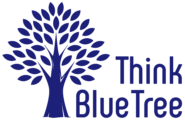“We work hard and play hard not because we are more industrious or more playful than our ancestors but because we dare not stop lest in the stillness we are overwhelmed by the sound of our own anxieties and fears.”
Written in the introduction to Paul Tillich’s book The Courage to Be, this quote has always really stood out to me. There’s a sense of busy-ness in the world today, with never enough time to do this or that and a pressure to always be doing. To sit still is to waste time. There are recovery days from working out and recovery days from working.
And it’s no secret that we are struggling more than ever since we have started recording data on mental health, so I’d like to explore a unique perspective, one where we don’t add more to our life- but do less.
What I’m suggesting is that in order to move towards a life of fulfillment and meaning we might need to draw on an age-old habit, one that has served many people in a useful way…
Do Less And Be Bored
In our quest for constant stimulation, it may seem we have forgotten the value of boredom. Boredom is often seen as something to be avoided at all costs, something you do when you fail to have a task. And yet it holds significant potential for personal growth and creativity. What if instead of boredom being a lack of a task, it becomes a task we can pursue.
I’m talking about contemplative boredom, a chance to let the mind wander and do its thing. It’s that time that we can reflect and contemplate, get in touch with a sense of honesty with ourselves as we listen with open ears.
When we allow ourselves to be bored, we create a space where our minds can wander, reflect, and process our experiences. This stillness can lead to moments of clarity and insight that are often missed in the hustle and grind of our daily lives.
Boredom encourages us to face our inner thoughts and emotions, something that terrifies many of us, by providing an opportunity to understand ourselves better.
Instead of filling every moment with activities and distractions, embracing boredom can be a powerful tool in finding meaning and fulfillment. It is in these quiet moments that we can reconnect with our values and discover what truly matters to us.
It’s not that it’s not ok to be busy, but that we need to honestly ask ourselves the question whether all those things really add value to our lives in the way that matters. And I get it, there’s the things we need to do to survive, like working and the chores of life. We have responsibilities. So yes, there’s a grind there, like rolling a boulder to the top of a hill only to watch it roll down again so we have to start each day anew.
Yet there’s always choices in how we do those things. Even mundane tasks can be done with reflection. Being bored intentionally is a choice, and when we choose to do something, we have the chance to make it more meaningful.

Famous Examples of People Who Were Bored (And Did Cool Things)
History is filled with stories of brilliant minds who embraced boredom and came up with groundbreaking or creative ideas. Sure, it’s unlikely you or I is going to be added to the list, but I think it speaks volumes to the potential of boredom.
Take Albert Einstein, for instance. Known for his revolutionary contributions to physics, Einstein often spoke about the importance of solitude and contemplation. His famous thought experiments, like imagining himself riding a beam of light, were born out of quiet reflection.
Another example is J.K. Rowling, who came up with the idea for the Harry Potter series during a delayed train journey from Manchester to London. She was simply sitting and thinking, allowing her mind to wander.
Similarly, Isaac Newton formulated the theory of gravity while taking a break from his studies and spending time in his garden. The now famous apple falling from the tree led to a deep insight that allowed him to continue his mathematical works.
And perhaps one of the most famous stories involves Archimedes, the Greek inventor. While taking a bath, he noticed how the water level rose when he entered the tub. This observation led to his principle of buoyancy, known as Archimedes’ principle. His famous exclamation, “Eureka!” captures the sudden insight that came from a moment of quiet contemplation.
These moments of boredom and stillness allowed these people to connect with their creativity and come up with ideas that changed the world. Embracing boredom can open up similar opportunities for us to explore our own creativity and problem-solving abilities.
Now we might not be the next Einstein and our baths may not involve eureka moments, but the impact on our own lives can be just as profound. It’s about the dedicated time to reflect on our experiences that allows a sense of self honesty to bubble through.
The Science Behind Boredom
Modern research also supports the idea that boredom can be beneficial. Studies have shown that when our minds wander, the brain’s default mode network (DMN) is activated. This network is crucial for self-referential thinking, problem-solving, and creativity.
Allowing ourselves to be bored can help activate this network, leading to increased creativity and problem-solving abilities.
Moreover, boredom can serve as a mental rest period, allowing our brains to recover and reducing the risk of burnout. And with the overstimulation from our phones and TV these days, we may need all the help we can get to balance it out!
Bottom line: Engaging in periods of boredom can improve overall mental well-being.

Practical Strategies to Be Bored
To integrate the benefits of boredom into our lives, we can adopt some practical strategies.
Start by scheduling downtime in your daily or weekly routine where you intentionally do nothing. This could be as simple as sitting in a park, taking a walk without your phone, or staring out the window. Of course it’s hard to start when we have been conditioned by the modern world to be busy, so aiming for just a few minutes can be a great way to begin without creating too much pressure on yourself.
Practicing flexible attention skills can also help you become more comfortable with stillness and silence. This involves observing your mind with a curious attitude and watching what happens without getting caught up in it. You can expand the observation to your body in the form of scanning it and seeing the sensations throughout it.
These practices can help you tune into your thoughts and emotions without judgment, which is one of the key ways we know is very useful to dealing with our internal struggles.
Limiting screen time is another effective strategy. You don’t have to eliminate it completely if that feels out of reach. Just aiming for a small gradual reduction is the easy way to begin.
And finally, engaging in monotonous activities such as doodling or gardening, or even just organizing your space can create opportunities for your mind to wander and explore.
So to finish, by embracing boredom, we can rediscover the value of stillness and unlock our potential for creativity, personal growth, and a more fulfilling life. Give it a try, see what your experience tells you, and see what comes of being bored.
It might just be the best thing you didn’t do!





